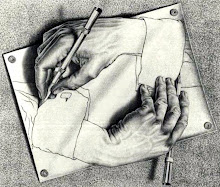TEXTO QUE NÃO LI NEM DOU CONTA DE LER MAS QUE FICA POSTADO AQUI EM HOMENAGEM AO MEU IRMÃO NOS DELÍRIOS E MEU PATO MOR NAS MESAS DE SINUCA LM Lemgruber! AFINAL, SÓ ELE MESMO PODERIA SEGUIR ESTA HiSTÓRIA ABAIXO DE COLOCAR A "ARITMÉTICA DE PEANO" EM QUESTÃO!
Titre du document / Document title
Putnam, Peano, and the malin génie: Could we possibly be wrong about elementary number-theory? = Putnam, Peano et le malin génie: peut-on se tromper sur la théorie des nombres élémentaires?
Auteur(s) / Author(s)NORRIS Christopher (1) ;
Affiliation(s) du ou des auteurs / Author(s) Affiliation(s)(1) Philosophy Section, University of Cardiff, P.O. Box 94, Cardiff CF10 3XB, ROYAUME-UNI
Résumé / Abstract:
This article examines Hilary Putnam's work in the philosophy of mathematics and - more specifically - his arguments against mathematical realism or objectivism. These include a wide range of considerations, from Gödel's incompleteness-theorem and the limits of axiomatic set-theory as formalised in the Löwenheim-Skolem proof to Wittgenstein's sceptical thoughts about rule-following (along with Saul Kripke's 'sceptical solution'), Michael Dummett's anti-realist philosophy of mathematics, and certain problems - as Putnam sees them - with the conceptual foundations of Peano arithmetic. He also adopts a thought-experimental approach - a variant of Descartes' dream scenario -in order to establish the in-principle possibility that we might be deceived by the apparent self-evidence of basic arithmetical truths or that it might be 'rational' to doubt them under some conceivable (even if imaginary) set of circumstances. Thus Putnam assumes that mathematical realism involves a self-contradictory 'Platonist' idea of our somehow having quasi-perceptual epistemic 'contact' with truths that in their very nature transcend the utmost reach of human cognitive grasp. On this account, quite simply, 'nothing works' in philosophy of mathematics since we can either cling to that unworkable notion of objective (recognition-transcendent) truth or abandon mathematical realism in favour of a verificationist approach that restricts the range of admissible statements to those for which we happen to possess some means of proof or ascertainment. My essay puts the case, conversely, that these hyperbolic doubts are not forced upon us but result from a false understanding of mathematical realism - a curious mixture of idealist and empiricist themes - which effectively skews the debate toward a preordained sceptical conclusion. I then go on to mount a defence of mathematical realism with reference to recent work in this field and also to indicate some problems - as I see them - with Putnam's thought.
Revue / Journal TitleJournal for general philosophy of science ISSN 0925-4560
Source / Source2002, vol. 33, no2, pp. 289-321 [33 page(s) (article)] (2 p.)
Langue / LanguageAnglaisRevue : Anglais
Editeur / PublisherSpringer, Dordrecht, PAYS-BAS (1990) (Revue)
Mots-clés anglais / English KeywordsPlatonism ; Objectivity ; Malin génie ; Descartes (R.) ; Thought Experiment ; Peano (G.) ; Arithmetic ; Set theory ; Scepticism ; Realism ; Mathematics philosophy ; Putnam (H.) ;
Mots-clés français / French KeywordsThéorie des nombres élémentaires ; Platonisme ; Objectivité ; Malin génie ; Descartes (R.) ; Expérience de pensée ; Peano (G.) ; Arithmétique ; Théorie des ensembles ; Scepticisme ; Réalisme ; Philosophie des mathématiques ; Putnam (H.) ;
Localisation / LocationINIST-CNRS, Cote INIST : 25879, 35400011075786.0040


Nenhum comentário:
Postar um comentário